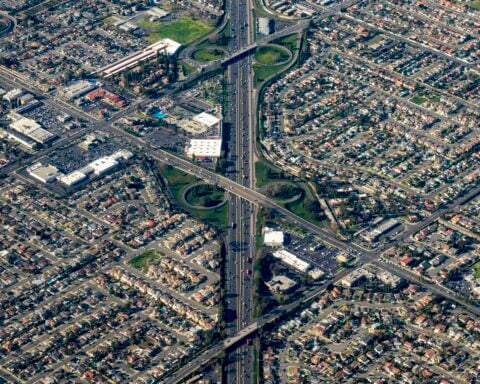How Denver’s program addresses issues
The Denver program is a direct response to work authorization processing times for newly arrived asylum-seekers which, in recent months, have taken as long as a year. Under federal law, asylum-seekers must wait 150 days before even applying to legally work in this country.
The Denver program is designed to put that waiting period to good use via workforce training, which increases the odds that migrants will quickly secure employment as soon as they’re allowed to work.
Workforce training will benefit not only the migrants themselves, but also their dependent family members and local economies. Recently published statistics show that 43% of refugees to Colorado were under 18, so getting migrant parents to work will minimize costs to programs that support children like public welfare services.
Other benefits of migrant services
Research suggests that supporting migrants will also promote local economic development.
An economics professor at Montana State University found that a 100-dollar increase in monthly assistance received by refugees through the federal Temporary Assistance for Needy Families program was associated with 5% to 8% higher wages for these migrants once they started working. The research concluded that refugee assistance was cost-effective to bridge refugees into well-matched jobs. Those jobs in turn contribute to the long-run economy that benefits everyone.
Refugee integration also has been shown valuable for Colorado specifically. Professors with the Colorado School of Public Health and the University of Colorado Anschutz documented links between economic sufficiency and community integration of 467 Colorado refugees over three years. They measured integration based on understanding American culture, knowing legal rights, and other aspects of social and economic stability.
Investment returns of migrant employment
A common counterargument to investments in new migrants is the possibility of labor-market displacement of native-born workers. However, in a paper circulated by the U.S. Department of State, refugee admissions were shown to have not affected wages or employment for natives over a 30-year study period.
A 2018 Colorado Department of Human Services report found that 2,700 refugees generated $611 million in new economic activity in the state. The rate of return was $1.23 in new state and local tax revenue for each $1 invested in refugee services.
If this first-of-its-kind program achieves this same return on investment, it can be expanded or replicated in other cities to decrease migrant expenditure and promote local economic sustainability.
This story was updated on Sept. 19, 2024 to reflect the city’s planned changes to the program.
Anita Alves Pena does not work for, consult, own shares in or receive funding from any company or organization that would benefit from this article, and has disclosed no relevant affiliations beyond their academic appointment.
Source: The Conversation

 Trump has begun another trade war. Here's a timeline of how we got here
Trump has begun another trade war. Here's a timeline of how we got here
 Canada's leader laments lost friendship with US in town that sheltered stranded Americans after 9/11
Canada's leader laments lost friendship with US in town that sheltered stranded Americans after 9/11
 Chinese EV giant BYD's fourth-quarter profit leaps 73%
Chinese EV giant BYD's fourth-quarter profit leaps 73%
 You're an American in another land? Prepare to talk about the why and how of Trump 2.0
You're an American in another land? Prepare to talk about the why and how of Trump 2.0
 Chalk talk: Star power, top teams and No. 5 seeds headline the women's March Madness Sweet 16
Chalk talk: Star power, top teams and No. 5 seeds headline the women's March Madness Sweet 16
 Purdue returns to Sweet 16 with 76-62 win over McNeese in March Madness
Purdue returns to Sweet 16 with 76-62 win over McNeese in March Madness








